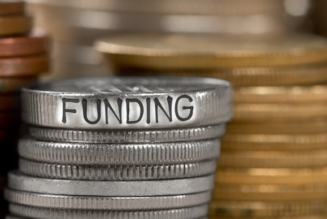Personal Finance
How homeowners end up with property valued less than loan
Tuesday February 21 2023
Negative equity also happens when there are sudden income shocks on the mortgagor or inadequate net income growth by the mortgagor or inconsistent lifestyle choices by the mortgagor. FILE PHOTO | SHUTTERSTOCK
When Joe Kariuki’s fortunes changed after a handsome bonus in a particularly bumpy returns season in 2018, he did what any sound investment-conscious person would do; cement and diversify his income revenue streams even further.
Mr Kariuki used the money as a downpayment for a second three-bedroom apartment in Nairobi’s Kilimani.
For Sh14.35 million in a market where a three-bedroom unit was averaging Sh18.5 million, he thought he had landed a deal.
He put the 10 percent down payment and secured a mortgage with a local bank for the rest of the financing.
Little did Mr Kariuki know that he was going down a rabbit hole that would prove to be a constant pain in the backside.
Mr Kariuki was required to pay roughly Sh200,000 a month to service the mortgage for a period of 15 years at a 14 percent interest rate.
Read: Why Kenya mortgage market is not growing
As a homeowner already and with investments ranging from farming to shares in various listed companies and still a director in two companies, paying the mortgage was not going to be a challenge.
“I realised the mistake I had made after I had signed the dotted line and was on the third month into making the payments,” said Mr Kariuki.
“While in the long run real estate is a great investment, in the short to medium term the investment was proving costlier than I had hoped. Securing a tenant took six months. Meaning that for those six months, I had to pay the mortgage directly from my pocket.
Low returns
In addition, when I got a tenant, the net income from the rent payments was not as high as I had initially thought. I had to be competitive to get a tenant because the unit was not going to be empty any longer.”
According to Amish Gupta, managing director of AG Capital, Mr Kariuki had fallen into the negative equity trap.
“This is when a homeowner would receive nothing from a willing buyer as all the proceeds have to go to the mortgage financier,” said Mr Gupta.
Basically, if Mr Kariuki had decided to sell the unit, he wouldn’t earn anything on it or even still would be required to top up a difference to the bank to offload the unit.
The price the unit would have attracted would have been lower than what it was bought at.
In addition, renting the unit out at Sh130,000 a month, the rental income was not sufficient to service the mortgage of Sh200,000. Mr Kariuki needed to top up Sh70, 000 every month.
Sh28bn negative equity loans
According to Mr Gupta who is a registered investment and transaction adviser by the umbrella body Institute of Certified Investment and Financial Analysts, approximately Sh28 billion out of Sh245 billion was non-performing as of December 2021 from the CBK fall into the bracket of negative equity loans.
“Negative equity cases would be included in this Sh28 billion as financiers continue to lend at high loan-to-value ratios. Income shocks may be more prevalent,” said Mr Gupta.
Mr Gupta observed that negative equity scenarios are a result of low equity contribution at purchase and throughout the mortgage period.
Negative equity also happens when there are sudden income shocks on the mortgagor or inadequate net income growth by the mortgagor or inconsistent lifestyle choices by the mortgagor.
“In negative equity, the mortgagor earns negative real returns on investments due to actual levels of inflation (and actual real returns),” said Mr Gupta.
Mr Quincy Njenga who has been in the mortgage business for over 10 years said that negative equity is occasioned when individuals have to dig deeper into their pockets to make additional payments.
He reckoned that negative equity is also the result of high-interest rates for those buying through mortgage and in a few cases where the person selling colludes with a valuer for a higher valuation of the property.
“Sometime back we experienced a case where the owner of the house and the valuer had inflated the price of the unit,” said Mr Njenga.
“Also the aspect of overvaluing of the units came into play around 2009 where for instance you had your neighbour’s house sell for say Sh100 million then as a neighbour I look for a similar amount when selling.”
Money laundering input
According to Mr Njenga, increased flow of illicit cash from piracy, tenderpreneurs, suspected illegal trade and money laundering ended up in property pushing up prices to levels that were unsustainable and when anti-money laundering laws were enforced, property prices remained artificially high for non-cash buyers.
Read: Costly bank charges and fees triple home loan repayment
What can you do if you find yourself in a negative equity scenario?
Inject lump sum equity or consistent equity, explore interest-only mortgage where the principal is paid lump sum after a period or sell and leaseback the property until the mortgagor can buy back the home.
Mr Njenga recommended paying off the mortgage loan as quickly as possible. But first, a buyer needs to ensure that the valuation of the property is right.
“A good quantified valuation report means buying the property at the right price,” said Mr Njenga.
Mr Gupta on the other hand calls for: “International standards on valuation such as Royal Institution of Chartered Surveyors should increasingly be the minimum requirement in all property segments,” and that “licensed institutions should follow statutory/regulatory requirements as regards impairments policies, subsequent classifications and provisions,”









